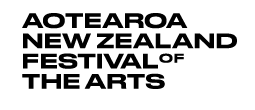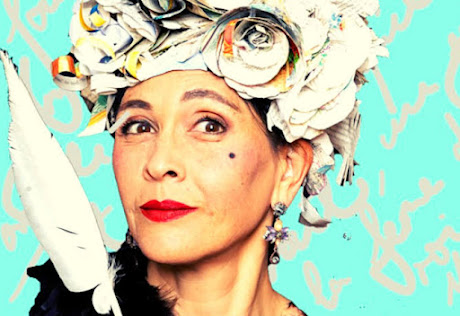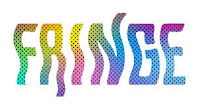Performers: Helene Pohl (Violin), Rolf Gjelsten (Cello), Nicola Melville (Piano), Bridget Douglas - Flute
The Chamber Music Series is a set of five separate concerts that artfully balance the familiar and the out of the ordinary. The brief was to bring together works that were rarely heard works with the more familiar, such as the beloved Bach Chaconne, and to juxtapose them with other masterworks to enhance the emotional impact of each programme.
The series covers quintets for string quartet, taonga pūoro with a Romantic piano quintet, a performance of Mozart’s epic Gran Partita and the Enescu Octet in Chamber
Music spectacular, world music celebrating nature and emotion (‘Voice of the Whale’) and solace in a troubled world with Bach by Candlelight. Sadly, in these Covid times we cannot attend in person. But if we did, then we’d all be crowded into the Michael Fowler Centre, wine in hand and buzzing with anticipation. Alas, only the musicians were ably to step inside. As a compromise, though
‘Tonight’s’ concert was a digitally streamed event featuring the groundbreaking 'Vox Balaenae (Voice of the Whale' by Pulitzer Prize and Grammy award winner George Crumb, Brazilian composer Heitor 'Villa-Lobos’ Assobio a Játo (Jet Whistle)' , Bacewicz’s Violin Sonata No. 4 and Rachmaninoff’s 'Trio elegiaque No.1 in G minor'.
George Crumb: ‘Vox Balaenae (Voice of the Whale)’
George Henry Crumb Jr. was an American composer of contemporary classical music, who early in his life chose to reject the modernist usage of serialism, popular at the time, instead developing a highly personal musical language which ranged from peaceful to downright nightmarish.
What Crumb has written gives a distinct musical voice to the cause, whilst providing a richly vivid seascape and endearing empathy with these magnificent creatures. At the heart of the piece is the contemporary relationship between humans and whale. It’s something of a chronological journey touching on science, especially studies in underwater audio, and nods to whaling history and asks moral and ethical questions.
For ‘Vox Balaenae’, Crumb was deeply influenced by the environmentalism movement of the 1970 particularly “save the whales” campaigns. While inspired by recordings of humpback whale song, he avoids using tapes and asks the three musicians with their instruments.
And it’s intriguing to watch as much as it was to listen to. Flautist Bridget Douglas not only plays but also sings into the mouthpiece of her instrument while pianist Nicola Melville 'engineers' sounds from hers by manipulating and plucking the strings the strings like a harp or striking them gently with a tuning mallet.
Cellist Rolf Gjelsten emulates the high-pitched squeaks and squalls of whales calling to each other.
Even more challenging, the performers must whistle, play bells and timpani, against a swelling tide of string, piano and flute that recalls the graceful movements through the waters and a juxtaposition to the anarchic squeaks of the whales' voices.
As the flagship piece, this experimental work was delightfully executes, with the performers clearly relishing the chance to push their instruments, and themselves, to the limits.
All players wear black half-masks and (in Crumb’s own words) efface “a sense of human projection, [the masks] will symbolize the powerful, impersonal faces of nature”.
This particular performance includes hints of the oft-used blue lighting, which unfortunately isn’t very obvious on the small screen, to provide a visual immersion into the sea.
I really enjoyed the way the piece begins with these individual whale conversations moving into a cacophony of chatter space, with the nose of the commercial sea threatening the harmony of the solitary.
Grażyna Bacewicz – ‘Violin Sonata No. 4’
The following a Violin Sonata by Grażyna Bacewicz, an icon of Polish composition in the early 20th century, and a virtuoso violinist in her own right. It is believed she wrote this for herself to play, as an evocative challenge of wilding swinging moods that range from highly gestural witty and even flirtatious.
Bacewicz was admired by Witold Lutosławski as ‘a distinguished Polish composer of the 20th century and one of the foremost women composers of all time’. As a former pupil of Kazimierz Sikorski and then Nadia Boulanger, she then studied in pre-war Paris. She referred to her music as falling into three periods: Period 1 - youthful, very experimental; Period II - atonal’; and ‘Period III ‘absolutely avant-garde in nature’. This piece falls into that third category but remains accessible, even to new ears.
In the first two movements, ‘Moderato’ and ‘Andante ma non troppo’, you can hear hints of gypsy dance and throughout ‘Scherzo: Molto vivo’ there’s a contrast between marching and Nationalist bands and mischievous tip-toeing, as a child would be sneaking through the backstreets during a parade. The ‘Finale’ is a tension of nervous energy, like a secret about to explode out of the mouth.
I don't really know the background of this work or the composer but now I'm very keen to find out more about her.
I found Helene Pohl's violin playing simply mesmerising. Not only technically brilliant but just so commanding in the way she inhabited the very soul of the person I now know is ‘Bacewicz’. I feel like I’ve just had a fleeting conversation, an introduction I need to return to.
Heitor Villa-Lobos - Assobio a Játo or Jet Whistle
Created for flute and cello by celebrated Brazilian composer Heitor Villa-Lobos ‘Assobio a Játo’ beautifully juxtaposes the flute and cello. Described as "the single most significant creative figure in 20th-century Brazilian art music", Villa-Lobos was a prolific composer, writing numerous orchestral, chamber, instrumental and vocal works - over 2000 works by his death in 1959.
True to his style of combining Brazilian melodic and rhythmic elements with Western classical music. This is a voyage of discovery, expertly led by the flute of Bridget Douglas who literally flies across the notes, starting with a Hovering, as if in a slow rumba then building with a passionate defiance, as a tango and a samba combined.
Sergei Rachmaninov – ‘Trio élégiaque’
The concert finished with Rachmaninov's ‘Trio élégiaque’, composed while he was still a student. At the time it caused a sensation, due to the departure from the styles of the day. The music was lost for many years, only to be rediscovered until well after his passing. Even in his early days he was exploring the romantic, and this features sweeping melodies and depth of feeling for which the he will become well known for in his later years.
Played as a Trio of violin, cello and piano, this has the old world cut crystal elegance we know and love. It's unashamedly romantic. Sweeping gestures, envelope you in satin cloaks of sounds, separated by voices on contemplation, angst, melancholy and jubilance.
It's easy to see why it was eye opening at the time. Today it would work well in the cinema as much as in the parlor, perhaps set against a vermillion sky. This may be a remnant of Imperial Russia, hints at folk dancing, skating on ice at Gorky Park, perhaps, fur hats and mittens. Dreamy scenes. Lives long departed. This is what came to mind.
If the advantage of a festival is to educate and enlighten then this certainly achieved that.
I am in awe, not only of the skill but of the amazing repertoire of this group and their knowledge and understanding. It is difficult to shine a light on lesser known works, let along bring an audience into the auditorium. And to remain so compelling and engaging under pandemic/digital conditions is truly incredible.
Hats off to this ensemble and to the production crew that have captured them so well.
Full Programme
George Crumb - Voice of the Whale (1971) for flute, cello and piano
Grażyna Bacewicz - Violin Sonata No. 4 (1949)
• Moderato
• Andante ma non troppo
• Scherzo: Molto vivo
• Finale: Con passione
Heitor Villa-Lobos - Assobio a Játo (The Jet Whistle) (1950) for flute and cello
• Allegro non troppo
• Adagio
• Vivo
Sergei Rachmaninoff - Trio élégiaque No. 1 in G minor: Lento lugubre (1892)
Available to digitally stream from Monday 7 March – Sunday 3 April 2022















